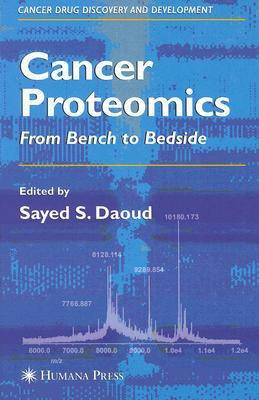Cancer Proteomics 1st Edition(English, Hardcover, unknown)
Quick Overview
Product Price Comparison
This book provides the reader with broad perspectives and breadth of knowledge on current topics related to the use of proteomic strategies in cancer therapy as well as anticipated challenges that may arise from its application in daily practice. The book is divided into 4 parts. The first part begins with the current technologies used in proteomics that allow for protein profiling and for the identification of druggable targets in human samples. Mass spectrometry based protein characterization and protein microarrays hold great promise of predicting response to specific drugs in cancer therapy. The second part deals with the use proteomics in cell signaling. At the present, the pharmaceutical and biotechnology industries have many potentially useful small molecule inhibitors of many pathways important in cancer that have yet to be taken to clinical trials. Understanding protein-protein interaction and posttranslational modifications through proteomics will likely make it much more feasible to do effective clinical trials of these small molecules alone and in combinations to overcome drug resistance and improve patient care. The third part of the book moves from signaling to actual clinical applications of proteomics in cancer therapy. Case studies in may tumor types are provided to show the feasibility of generating the critical information needed to individualization of therapy in cancer patients. The final part of the book provides in depth information on annotating the human proteome and the role of Food and Drug Administration (FDA) in regulating the use of proteomics in cancer therapy. To functionally annotate the human proteome, the Swiss Institute for Bioinformatics (SIB) and the European Bioinformatics Institute (EBI) initiated a major effort to distribute to the scientific community highly integrated information on human protein sequences. This initiative, which is called the Human Proteomics Initiative (HPI) aims to provide for each known human proteina wealth of information that include the description of its function, domain and protein family classification, subcellular location, posttranslational modifications, variants and similarities to other proteins. Integration of bioinformatics into clinical application of proteomics in cancer therapy is outlined as well as regulations and policy of commercial application of proteomics in patient care.


